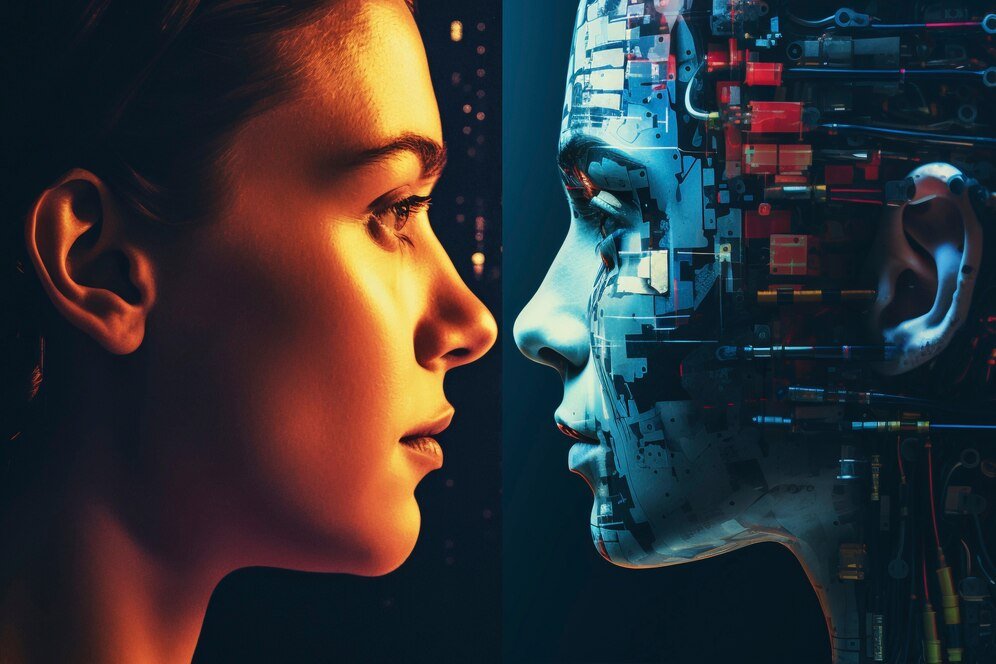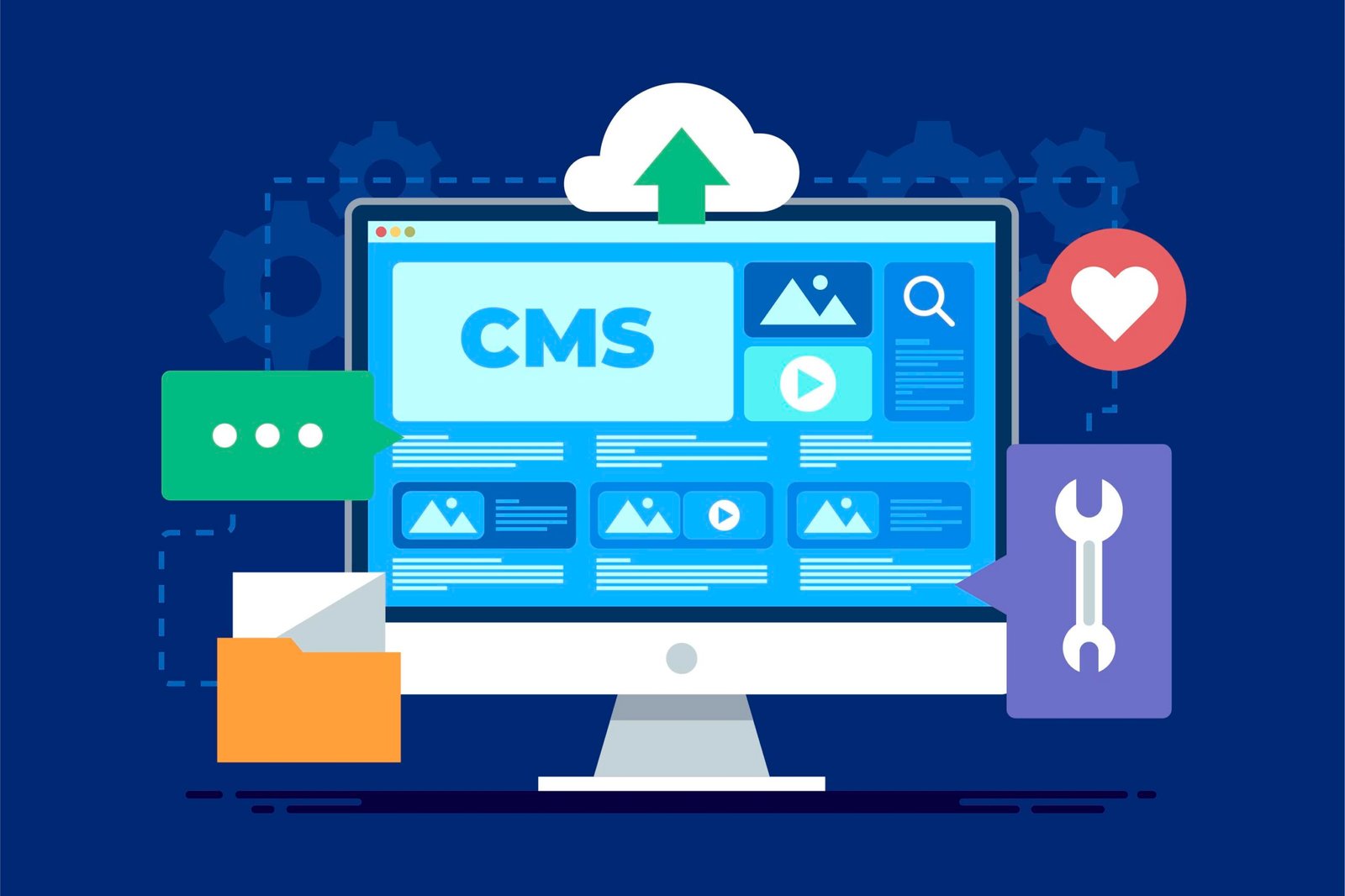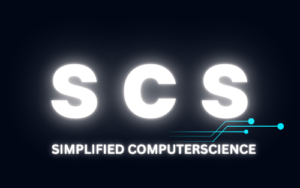Understanding Artificial Intelligence: A Beginner’s Guide to AI | Simplified Computer Science
- By Prerana
- Posted in Artificial Intelligence / Futures Tech / Insight blogs
- 0 Comments
- Updated
- 5 mins read

Introduction
Artificial Intelligence (AI) has become a buzzword in recent years, permeating various aspects of our lives and reshaping entire industries. From virtual assistants that manage our schedules to sophisticated algorithms that predict market trends, Artificial Intelligence is revolutionizing how we interact with technology. This comprehensive guide will delve into the fundamentals of AI, its diverse applications, and the future it holds.
What is Artificial Intelligence?
At its core, AI refers to the development of computer systems that can perform tasks typically requiring human intelligence. These tasks include learning, reasoning, problem-solving, perception, and language understanding. Artificial Intelligence systems use algorithms to process data, recognize patterns, and make decisions based on the information available.
Types of AI
AI can be categorized into several types, each with distinct characteristics:
1. Narrow AI (Weak AI):
Narrow AI refers to AI systems designed to perform a specific task or a narrow range of tasks. These systems do not possess consciousness or self-awareness.
Examples:
- Virtual Assistants: Tools like Siri and Alexa can perform tasks like setting reminders or answering questions based on pre-programmed responses.
- Recommendation Systems: Platforms like Netflix and Amazon use AI algorithms to suggest content based on user preferences and behavior.
2. General AI (Strong AI):
General AI represents a theoretical form of AI that possesses the ability to understand, learn, and apply knowledge across various domains, akin to human intelligence.
Current Status: As of now, general AI remains a concept within the realm of research and development. There are no existing systems that fully exhibit this level of intelligence.
3. Superintelligent AI:
This hypothetical form of AI surpasses human intelligence across all aspects, including creativity and problem-solving.
Implications: While it raises exciting possibilities, it also presents ethical and existential challenges, sparking debates among scientists and philosophers.
How Artificial Intelligence Works
Artificial Intelligence systems function using various methodologies, including:
- Machine Learning (ML): A subset of AI that allows systems to learn from data and improve over time without explicit programming. ML algorithms identify patterns and make predictions based on historical data.
- Deep Learning: A more advanced form of ML that uses neural networks to simulate human brain functioning. It excels in image and speech recognition.
- Natural Language Processing (NLP): This area of AI focuses on the interaction between computers and humans through natural language. NLP enables machines to understand, interpret, and respond to human language.
Applications of Artificial Intelligence
AI’s applications are vast and diverse, impacting various sectors:
1. Healthcare:
- Diagnostics: AI algorithms analyze medical data and images to assist in diagnosing diseases, leading to earlier and more accurate detections.
- Personalized Medicine: AI helps tailor treatments to individual patients based on their genetic makeup and medical history.
2. Finance:
- Algorithmic Trading: AI systems analyze market data and execute trades at lightning speed, optimizing investment strategies.
- Fraud Detection: Machine learning algorithms identify unusual patterns in transaction data, flagging potential fraud in real time.
3. Transportation:
- Self-Driving Cars: Autonomous vehicles leverage AI to navigate, interpret surroundings, and make driving decisions without human intervention.
- Traffic Management: AI systems optimize traffic flow by analyzing real-time data from vehicles and infrastructure.
4. Education:
- Personalized Learning: AI platforms assess students’ strengths and weaknesses, offering customized learning experiences and resources.
- Administrative Tasks: AI streamlines administrative processes, such as grading and scheduling, freeing educators to focus on teaching.
The Future of AI
As we look ahead, the future of Artificial Intelligence (AI) holds immense promise and potential challenges. The rapid evolution of AI technologies is set to transform industries, improve efficiencies, and redefine the way we live and work.
1. Advancements in Machine Learning and Deep Learning
As computational power increases and data availability expands, AI will process larger datasets, improving predictive capabilities. This will enhance decision-making processes across various sectors.
2. AI in Everyday Life
- Smart Cities: AI technologies will optimize traffic management, energy usage, waste management, and public safety.
- Health Monitoring: Wearable devices with AI will continuously monitor health metrics and provide personalized insights.
3. Ethical AI and Accountability
- Bias and Fairness: Developers must ensure AI systems are free from bias and discrimination.
- Transparency: Users need to understand how AI systems make decisions, particularly in critical areas like healthcare and finance.
- Regulations: Ethical guidelines and legal frameworks will be essential to govern AI usage responsibly.
4. AI and the Workforce
AI will create opportunities in fields like AI development and data analysis while displacing some jobs. The future workforce must focus on:
- Upskilling and Reskilling: Continuous learning to acquire relevant skills.
- Human-AI Collaboration: Machines will augment human capabilities by handling repetitive tasks.
5. AI for Social Good
- Environmental Conservation: AI can analyze climate patterns and biodiversity to support conservation efforts.
- Disaster Response: AI optimizes resource allocation and coordination during emergencies.
6. The Quest for General AI
The pursuit of General AI continues, promising revolutionary possibilities but also raising profound ethical questions.
Learn More at Simplified Computer Science
At Simplified Computer Science, we are dedicated to making technology and AI accessible to everyone. Our free tutorials and courses are designed to simplify complex topics, empowering you to enhance your skills and understanding.
Visit our website simplifiedcomputerscience.com for more resources, insights, and updates.
Conclusion
Understanding AI is essential in today’s rapidly changing technological landscape. By grasping its fundamentals, you can appreciate its implications and the exciting future it holds. Stay curious, keep learning, and remember that Simplified Computer Science is here to support you on your educational journey.
Algorithms Artificial Intelligence Artificial Intelligence and Machine Learning Basics of Computer Science Best AI Tools Blogging Career Roadmap ChatGPT Coding Skills Computer Science Computer Science Concepts Computer Science for Beginners Content Creation Data Science Data Structures Free Online Courses hackathon HR technology Insight blogs Introduction to Computer Science Machine Learning Python Programming Recruitment automation SEO Best Practices Social Media Software Engineering Web Innovators Hackathon website
Recent Posts
-
100 Essential Python Questions & Answers: Your Ultimate Beginner’s Guide to Mastering Python10 February 2025/0 Comments
-
Effective Project Execution: From Inception to Completion9 September 2024/
-
How to Create a Project Website on WordPress Without Coding9 September 2024/







